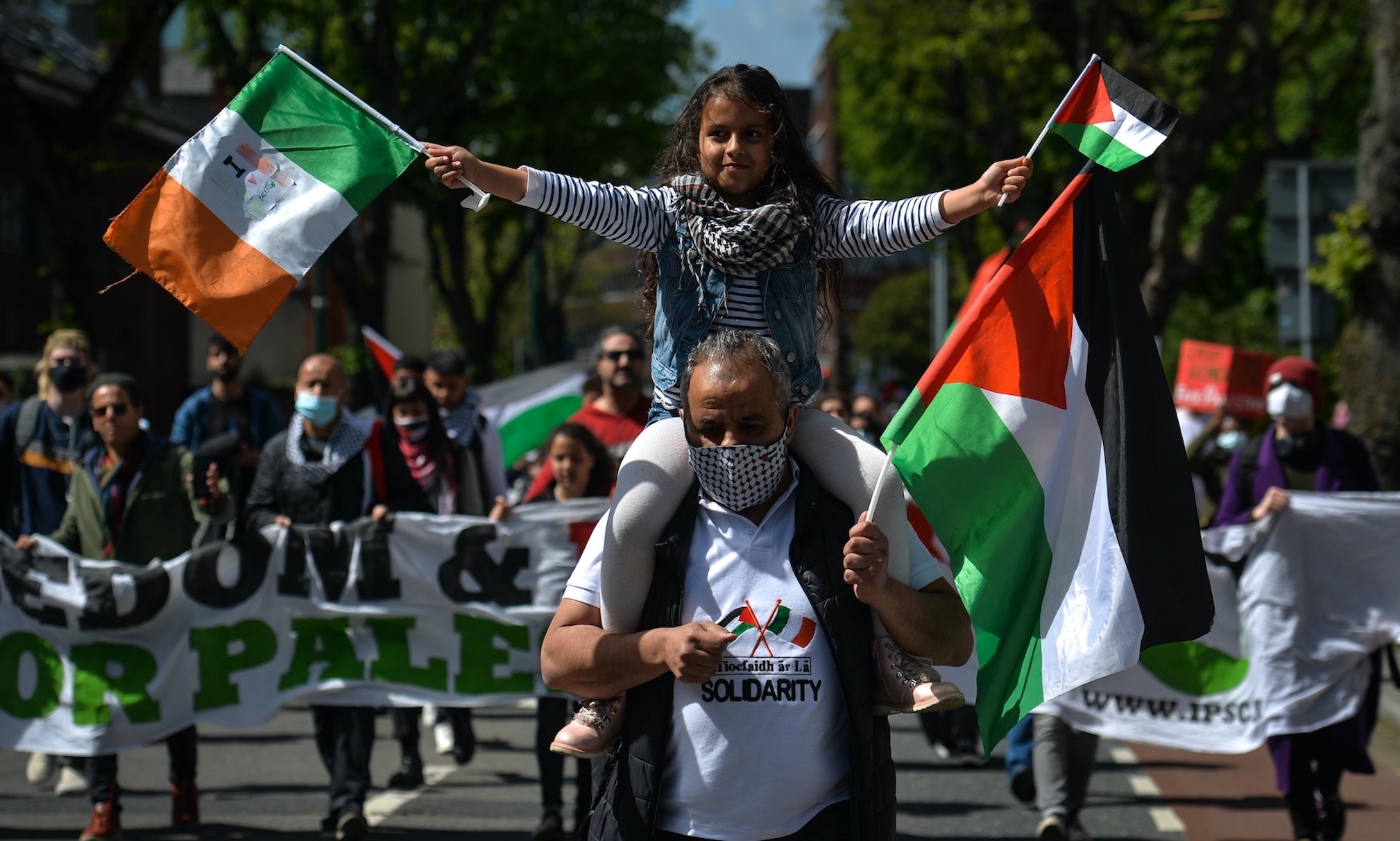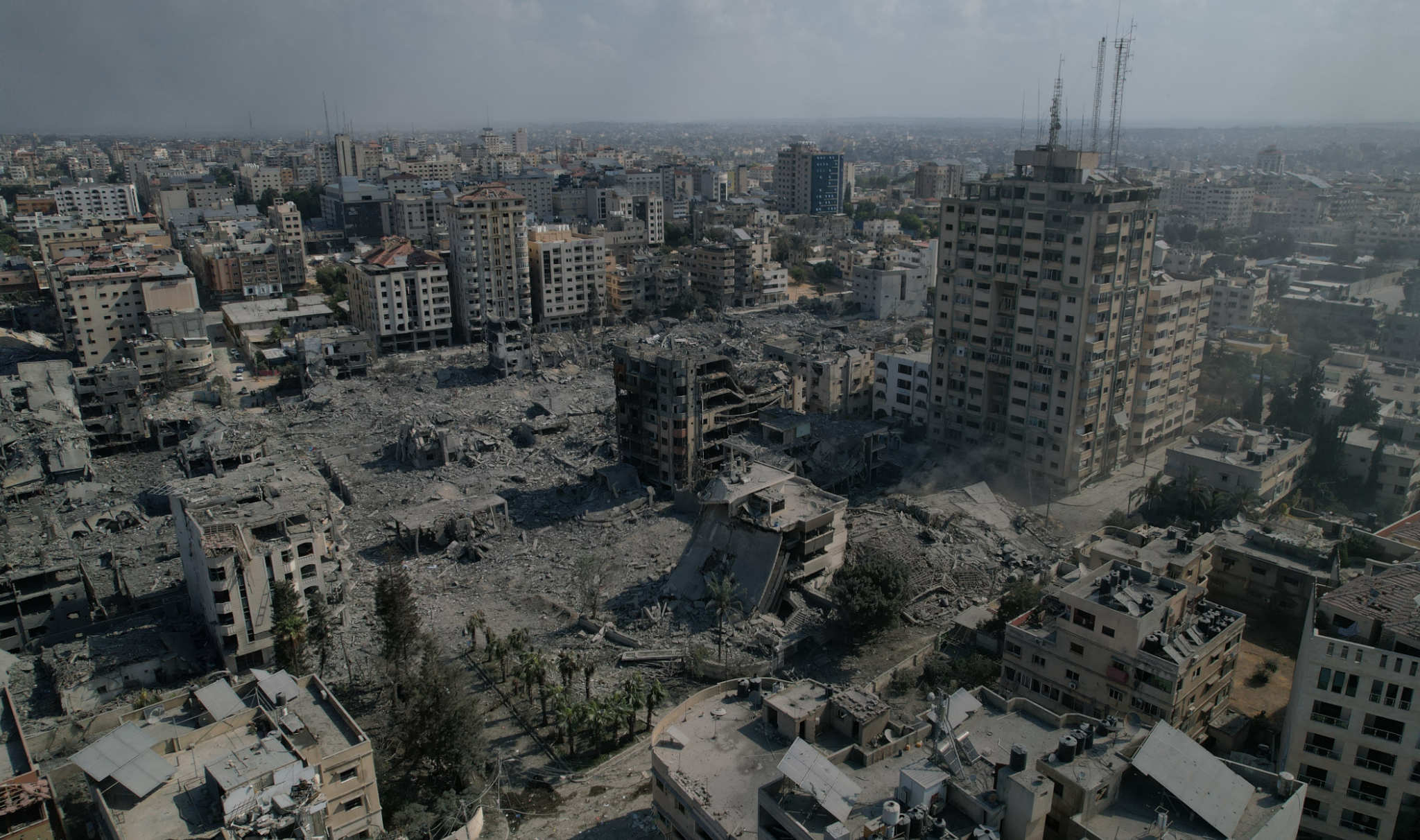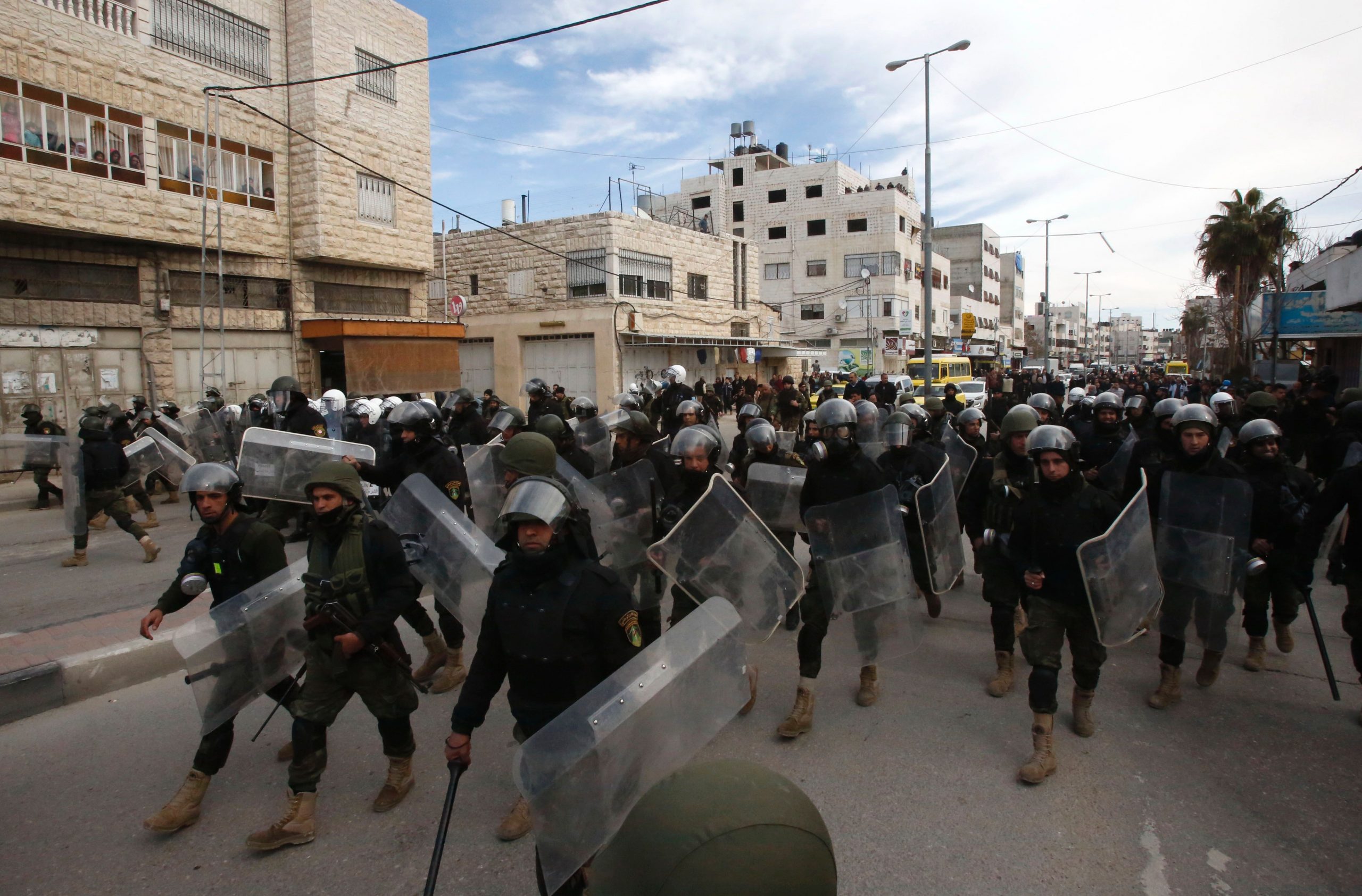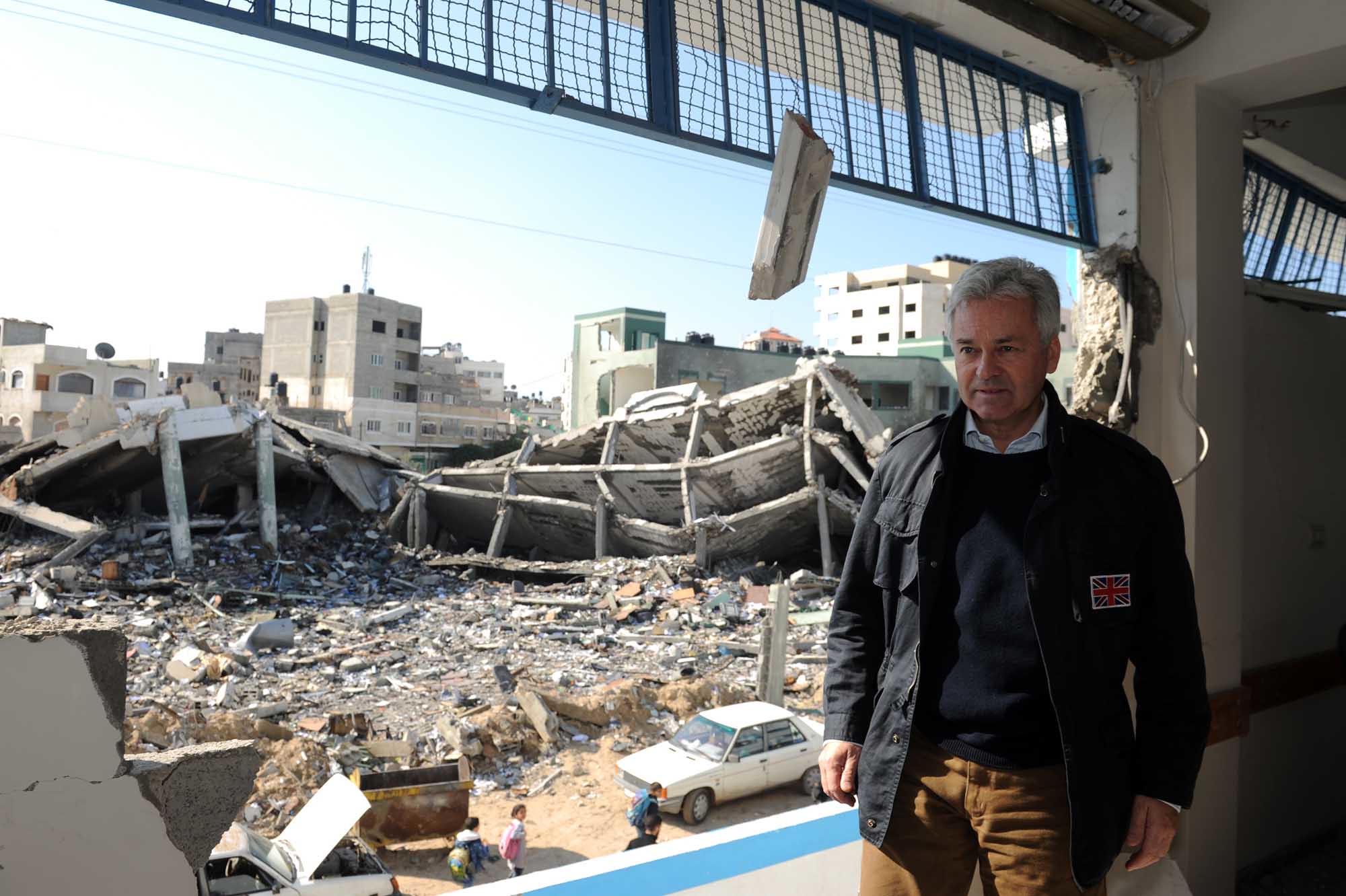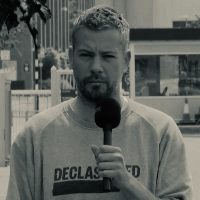When Israel began its illegal ‘total siege’ of Gaza, the political leadership of the Western world converged to line up behind it. It was the natural continuation of decades of support for Israel’s oppression of the Palestinians, termed apartheid by both Amnesty International and Human Rights Watch.
Particularly noticeable was the bipartisan support for flagrant violations of the Geneva Conventions, or war crimes. Whether it was the Republicans and Democrats in the US, or the Conservatives and Labour in Britain, everyone was reading from the same hymn sheet.
But in the British context, another thing was also immediately noticeable. There was one party, theoretically in charge of 6% of UK territory, which was speaking forcefully in favour of Palestinian human rights, a lone strident voice in the political mainstream.
This was Sinn Féin, the Irish republican and democratic socialist movement, which in May 2022 became the largest party at the Northern Ireland Assembly, the first time a nationalist party achieved this result since Ireland was partitioned in 1921. Under the terms of the 1998 Good Friday Agreement, Sinn Féin should lead the executive in the territory, although the Unionist opposition have so far obstructed this happening.
On the day of the Hamas attacks on Israel, Sinn Féin spokesperson Matt Carthy condemned those atrocities. “There is no justification for the killing of civilians on any side,” he said.
But his statement did not end there. Carthy added context, information which is verboten for other mainstream parties in the UK.
“The violent offensive by Palestinian forces has occurred against a sustained intensification of the Israeli state’s occupation and apartheid in Palestine since 2022,” he said. “A lasting and just peace between Palestinians and Israelis requires an end to the occupation and apartheid systems being imposed upon the Palestinian people.”
Sinn Féin
Solidarity with Palestinians is woven into the fabric of the party. The leader of Sinn Féin, Mary Lou McDonald, has the Palestinian flag as the banner photo on her Twitter page, and has been forceful in her denunciations of Israel’s war crimes in Gaza. She actually calls them “crimes”, which again is strictly forbidden in British politics.
On top of this, McDonald was out at the pro-Palestine demonstration in Dublin on Saturday. “Standing with the people of Palestine,” she wrote. “The world cannot stand by as Gaza is decimated.”
Then there’s the First Minister designate of Northern Ireland, and McDonald’s deputy, Michelle O’Neill, who herself has a long history of speaking out against Israeli apartheid and the regime’s atrocities.
Around the time of Israel’s last bombing blitz in Gaza in May 2021, O’Neill said: “International solidarity played a key role in defeating apartheid in South Africa and the same is needed to defeat apartheid in Palestine.”
She added: “As members of the international community, we have a responsibility to demand that international law is upheld. At present, it is clear that the Palestinian people continue to be denied equality and rights while Israel continues to flout international law through its illegal occupation of the West Bank and siege of Gaza.”
She then called for action to stop Israel, a virtually impossible point of view to espouse in British mainstream politics. “The UN and the EU should uphold their own rulings by ensuring Israel faces sanctions for its actions,” O’Neill said.
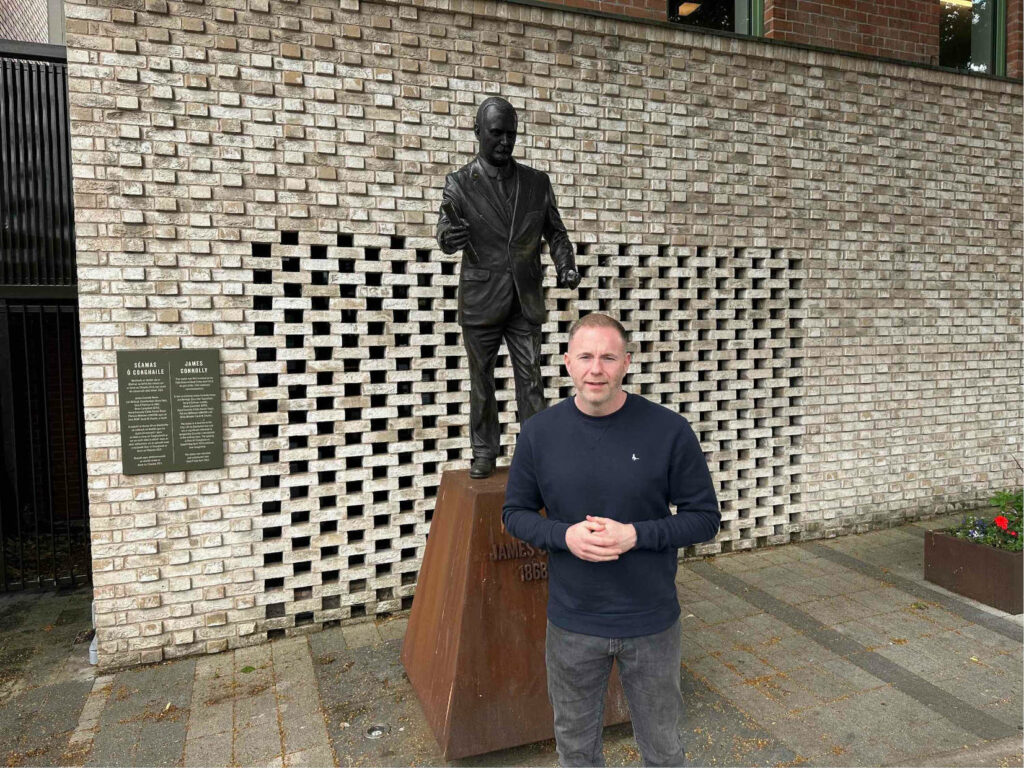
The wider struggle
In Northern Ireland recently I met with Chris Hazzard, Sinn Féin MP for South Down, in Belfast. The 39-year-old MP is a rising star of the republican movement and he wanted to meet at the James Connolly Centre in the west of the city.
Connolly is a hero of the independence struggle as a key figure in the Easter Rising of 1916, after which he was shot dead by the British. Hazzard is clearly not your average MP and he’s exasperated that the English left haven’t cottoned on to what is happening across the Irish sea.
“It’s funny, I spoke at a rally in Liverpool last year and I said, when the English left look west, they see Latin America and they look right over Ireland,” he tells me. “I was like, there is an anti-colonial movement on your doorstep.”
Crucially, Sinn Féin is looking out from Ireland to build up anti-imperialist forces around the globe. They see themselves as one part of an international movement. Hazzard’s Twitter biography reads: “Active in the struggle for national liberation & international solidarity.”
“The work that we do on an international stage, I think, is hugely powerful,” he tells me. “Whether I’m in Palestine or Turkey or South America, wherever it is, you’re reminded at all times of a wider struggle and that you’re part of that.”
Listening to Hazzard talk is a disorientating experience for a British journalist. Here is an MP, with a seat in the House of Commons, speaking freely and passionately about Israeli apartheid, the murderous sanctions on Cuba, and Turkey’s brutal persecution of its Kurdish minority. This is not allowed.
Add to the mix Hazzard is representing the party that should be running the executive in Northern Ireland and you can see what he’s talking about. How have the English left missed this?
International solidarity
I ask Hazzard why Sinn Féin puts such a high premium on international solidarity considering they have their own very pressing domestic programme, the top of which is Irish reunification.
“This is one with deep historical roots,” Hazzard tells me. “Our relationship with the imperial island next door, and being its first colony, there’s that power imbalance. We’ve always been that small island. In order to fight that anti-colonial struggle, we’ve had to look to different parts of the world for support, whether that’s Spain, France, wherever it might have been.”
The international element to Irish independence does indeed have a long history and is the force behind the Republic of Ireland’s commitment to neutrality.
“Our demands around neutrality are based on understanding our place in the world and being part of the anti-colonial struggle,” Hazzard says. “It’s that understanding that takes us to Palestine and to all different parts of the world.”
Wolfe Tone, a legendary figure in the Irish independence movement, wrote a pamphlet in 1790 – titled The Spanish War – arguing that Ireland should remain neutral in the Anglo-Spanish war which was raging in the period.
Tone wrote: “The rising prosperity of Ireland is immolated on the altar of British pride and avarice; we are forced to combat without resentment in the quarrel of an alien, where victory is unprofitable and defeat is infamous.”
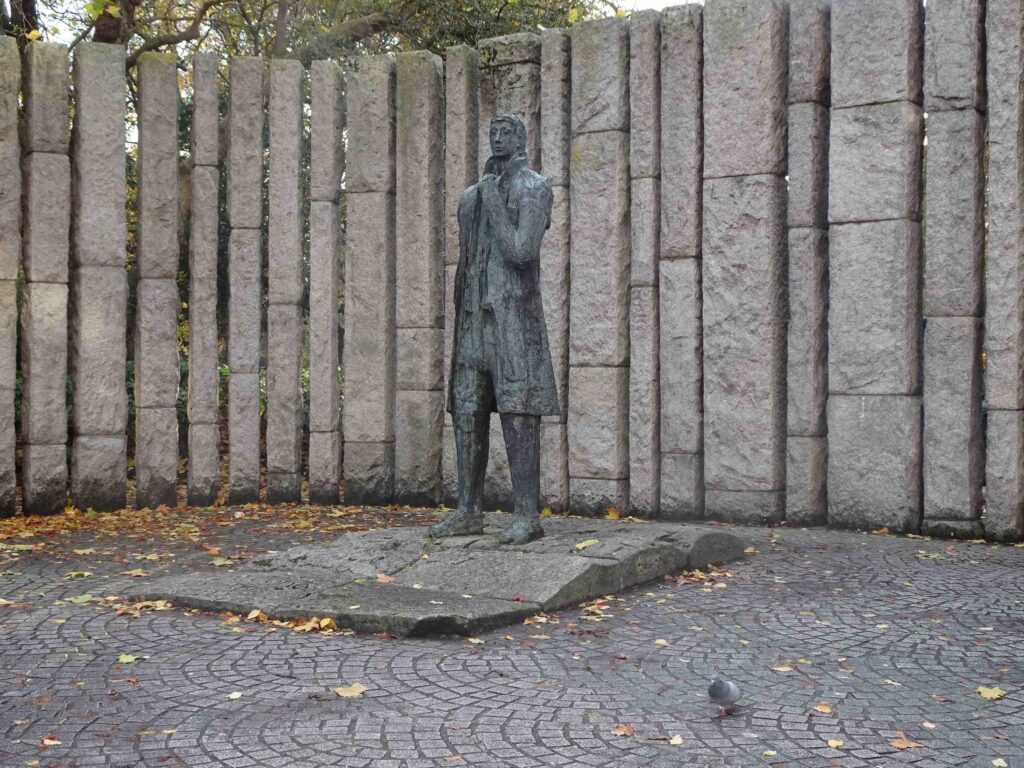
Raw conflict
Sinn Féin is carrying on Tone’s legacy, according to Hazzard, who adds that the other important point is that the violent conflict in Ireland is a recent memory.
“In our lifetime, and in the last generation, we were still at war with Britain, there was still conflict going on,” Hazzard says. “So the whole lens of the world at that time – the South African struggle, large successes in Latin America were just in that wave as well – the Irish independence struggle was part of that.”
This is clear to anyone who walks around republican areas of Belfast. “If you go up and down this road, you’ll see the murals of Che Guevara, you’ll see the murals for the Palestinian Liberation Organisation,” Hazzard says. “That’s all part of it.”
After his frequent trips abroad, Hazzard says that he now feels a personal responsibility to use his position in the imperial core to raise the voices fighting imperialism worldwide.
“When you’re engaged in that international solidarity work, you’re reminded very often, and sometimes you hear this, that we have become their platform in Europe,” he says. “Very often you have that fraternal bond, you’ll meet somebody in Palestine or you’ll meet somebody in Venezuela, wherever it might be, and they’re saying, ‘be our voice’.”
He pauses. “In order to do that, you need to remain outside the system to a certain extent.”
Staying radical
This is an important point. One of the noticeable things about national liberation movements across the world – and in Britain specifically – is how the central state eventually co-opts them.
One interesting case is the Scottish National Party (SNP) which was founded in 1934 and at times in 20th century had a radical platform, but is now in favour of an independent Scotland joining NATO. Some even question whether it even wants independence anymore. Splinter parties – like Alba – have begun to fill the vacuum.
But, so far, Sinn Féin have been able to resist such co-option. Perhaps the main structural reason for its continued independence is its policy of abstentionism. Although Sinn Féin MPs have offices in parliament they do not enter the chamber and do not take up their seats or take part in the business of the Westminster parliamentary system. They are the only party in the UK parliament to boycott the House of Commons.
“The real risk of institutionalisation is always there, but I think abstentionism, and that principle around abstentionism, has always been a real strong point,” says Hazzard. “You’ll occasionally get some of the media and the establishment say, ‘you don’t take your seat, how can you be effective?’ And you’re like, ‘well, do you see anybody being effective that does take the seat?’”
He makes the comparison to the SNP directly. “There are times you look at the SNP and you know that, in their own minds, they’re having that debate: are we being effective here or not?”
Hazzard continues: “Very often people will say to us, ‘it’s just an oath’. I say, no, the oath is just a small part of abstentionism. I just simply don’t believe that, as an Irish citizen, I should partake in anything to do with the British political system. I shouldn’t have a say over what’s been discussed in Britain.”
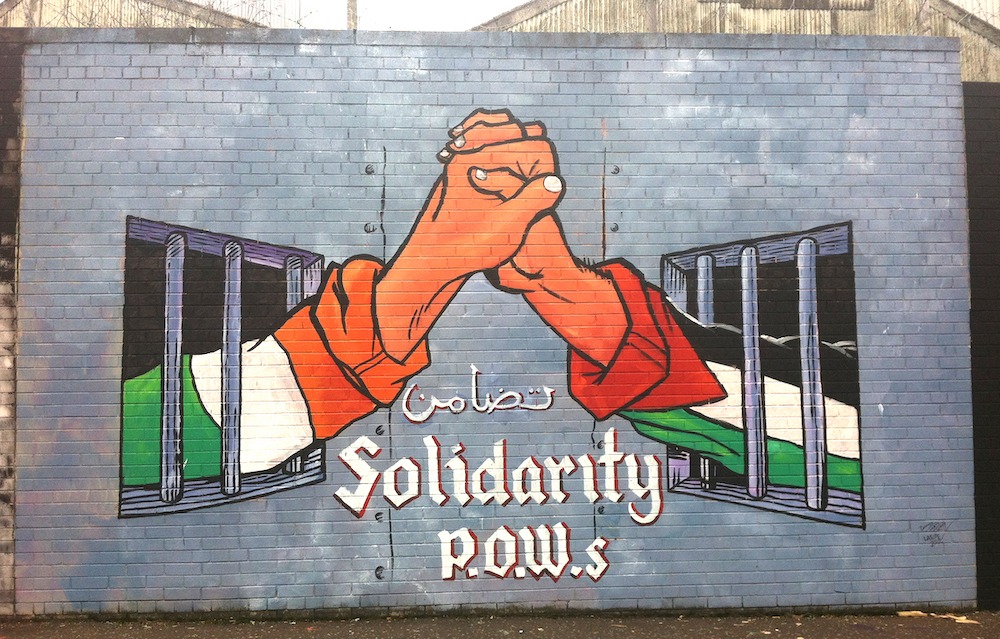
Grassroots
The other part of it is that Sinn Féin is a movement rooted in communities, Hazzard says.
“We’re grassroots in the community and it’s not just about the institution, it’s not about being a member of parliament, it is that wider process of struggle and understanding.”
He adds: “This is about independence, this is about liberation. Me having a job as an MP is such a small part of a far wider struggle that predates any of us by such a long time, and will continue on for many a decade as well.”
Sinn Féin’s policies are also set by its grassroots membership at its national convention. Any member can bring forward a motion.
“Our strength and independence come from that,” Hazzard says. “As a grassroots movement, our policies are not set by our parliamentary wing. I think some people that you meet from other parties, other parts of the world, it’s not like that. And you do see how they fall into the system and the institution, but thankfully we’re never allowed to.”
‘Jewish Ulster’
Palestine is a particular cause for Sinn Féin and in the republican areas of Belfast Palestinian flags are everywhere. Does Hazzard see similarities between the struggle in Ireland and Palestine?
“Certainly something that any student of Irish history learns from a young age is the fall of the ancien régimes in 1918, when lines are drawn on maps, whether that’s in the Middle East or here, they’ve exploded ever since. So you’re afforded that link to Palestine straight away, you see the parallels immediately.”
The purpose of the British government’s Balfour Declaration of 1917 – which promoted the establishment of a Jewish homeland in Palestine – was to form a “little loyal Jewish Ulster in a sea of potentially hostile Arabism”, according to Ronald Storrs, military governor of Jerusalem from 1917-26.
Every major political party in the Republic of Ireland now supports Palestinian liberation. This week, President Michael Higgins hit out at European Commission president Ursula von der Leyen for comments defending Israel’s brutal siege of Gaza.
“Irish solidarity with Palestine is because of our shared experiences of imperialism and being that smaller people being crushed from the outside by a far greater military might,” Hazzard says. “That’s the only thing I can think of. We don’t have shared cultures, we don’t have shared language, there’s no shared diaspora links with Palestine. It’s a shared experience of colonialism and that’s why it’s so strong.”
But the Irish republican movement also had a very strong link with another campaign against apartheid in the 20th century.
“As a movement, and the people of Ireland more generally, had a really strong affiliation to South Africa. It’s a fact which is lost on some people. Gerry Adams was a pallbearer at Nelson Mandela’s funeral. The links between Sinn Féin and the ANC have been really, really strong down through the decades.”
He adds: “But that sense of fighting apartheid in South Africa, I think, as a nation, it’s now switched to, well, they’re doing the same thing in Palestine. So there’s that same link, that same strength and that same solidarity.”

